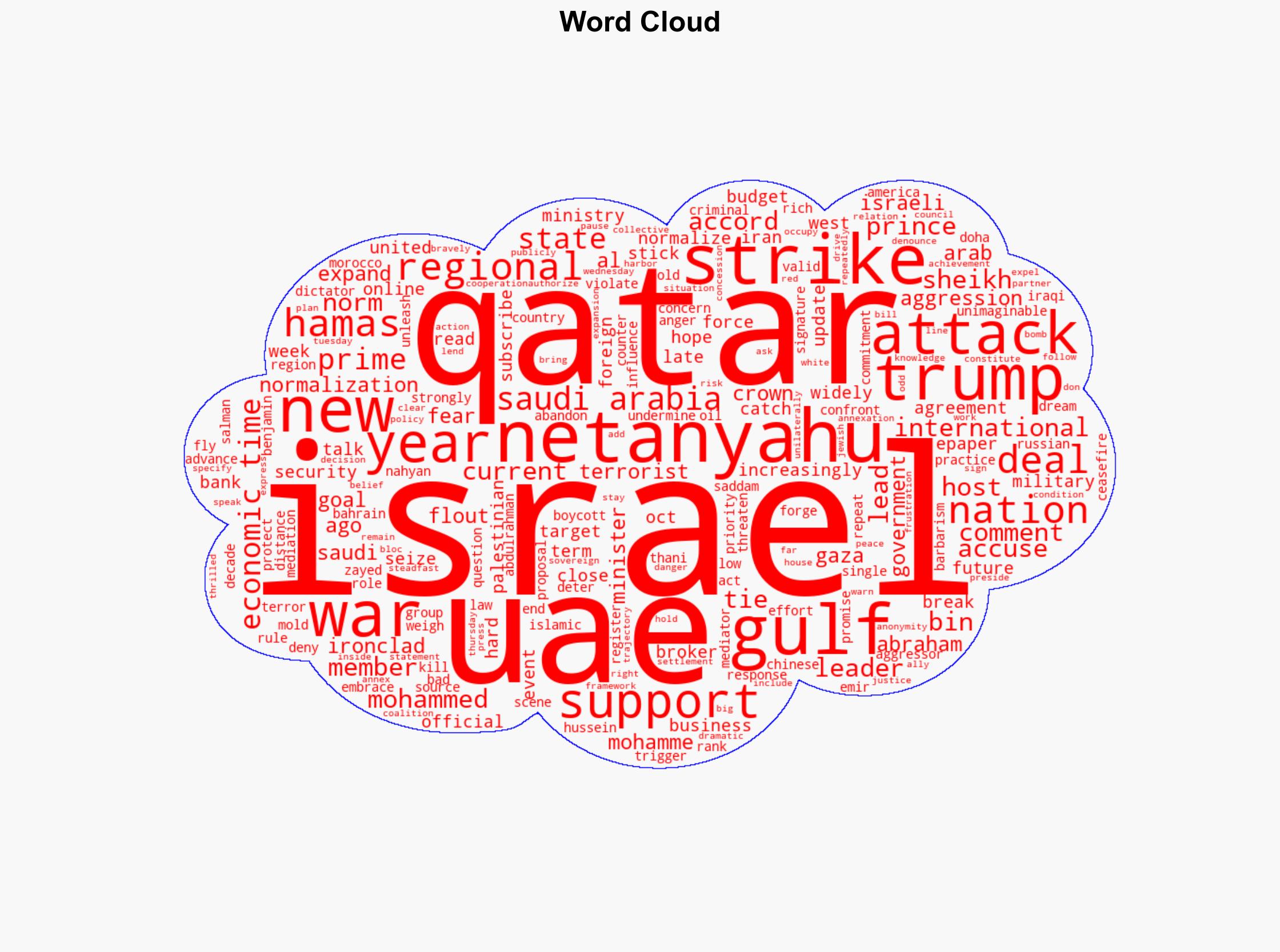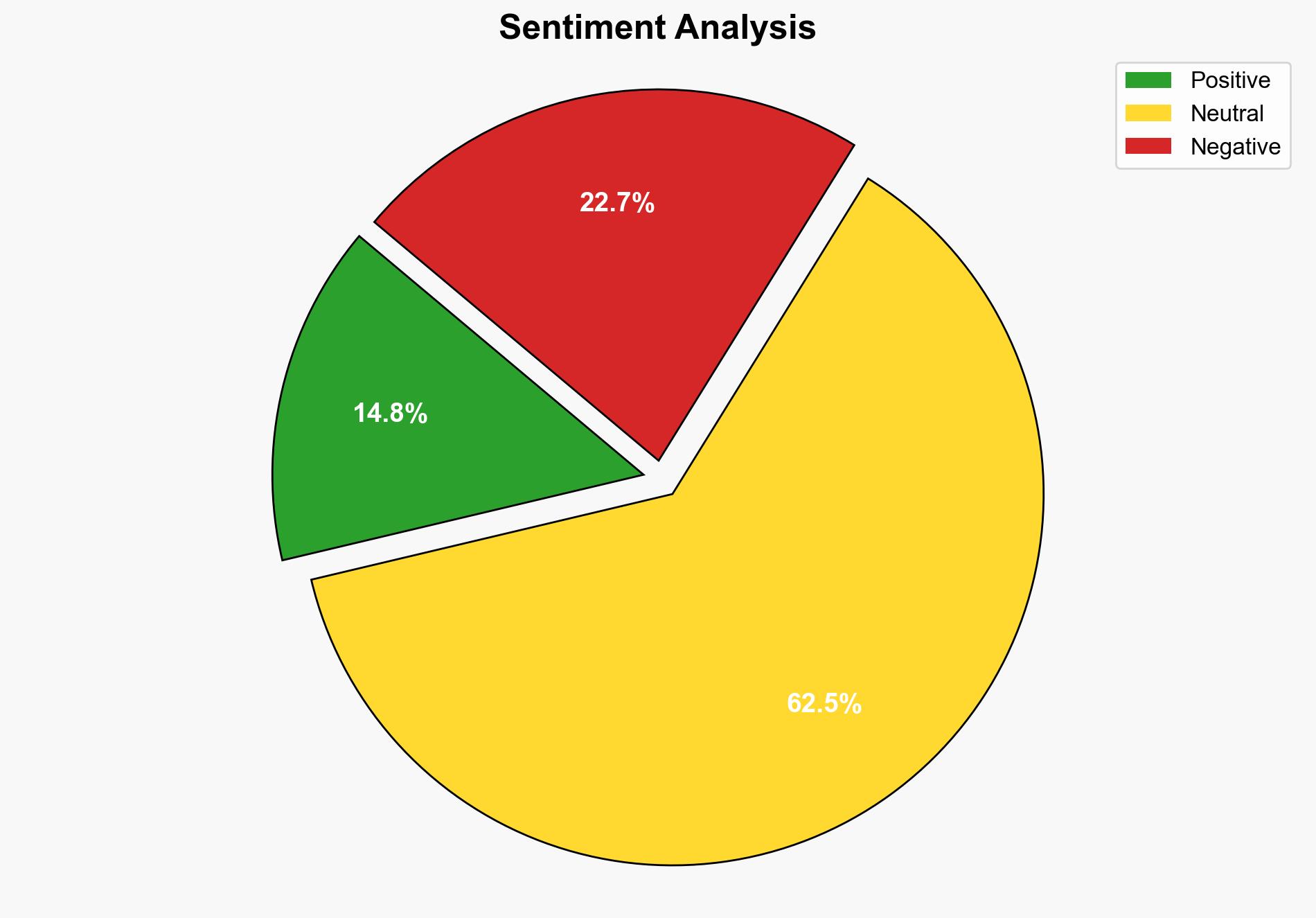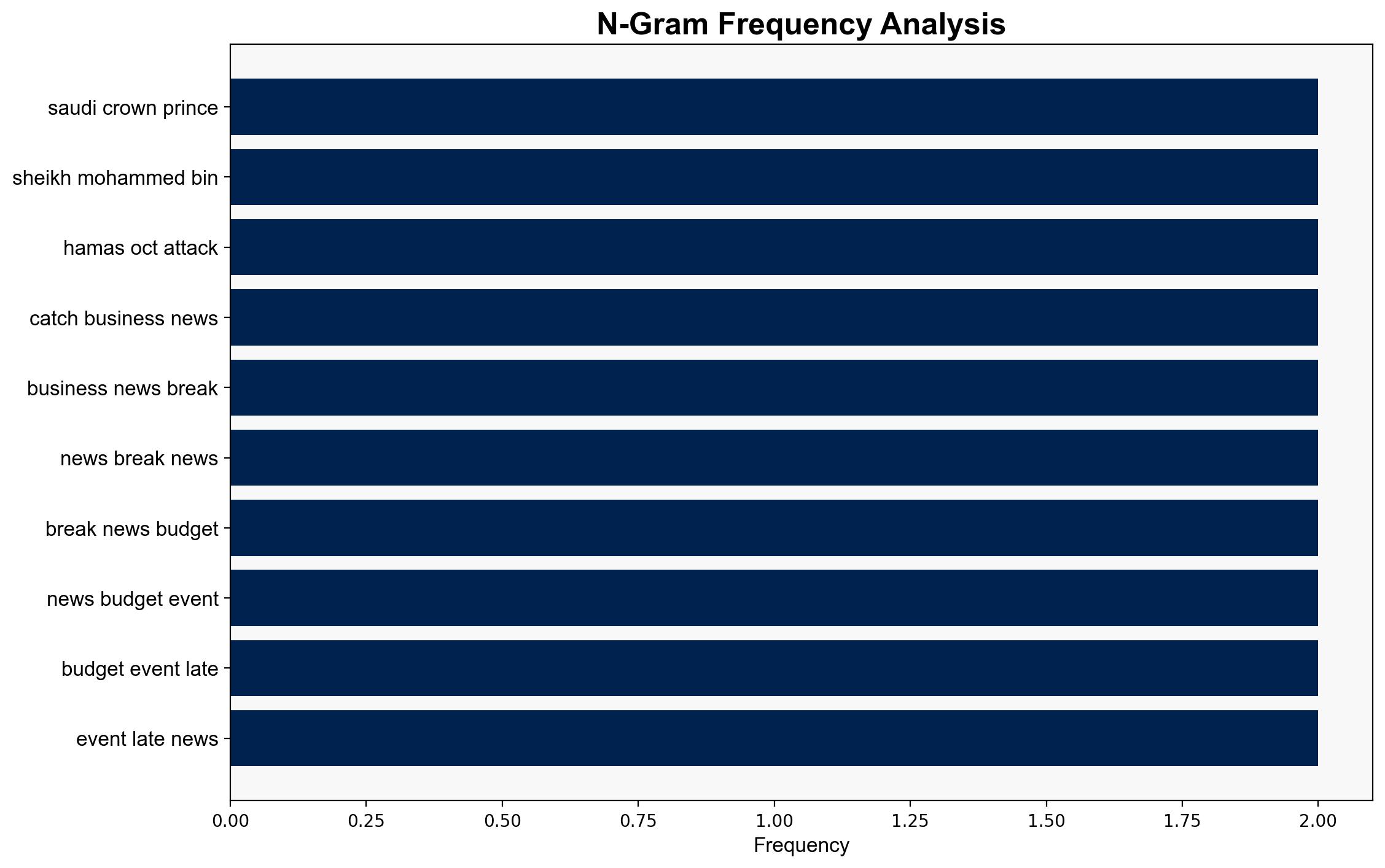Israel’s strike on Qatar has infuriated Arab leaders That bodes ill for Trump’s Mideast priorities – The Times of India
Published on: 2025-09-12
Intelligence Report: Israel’s strike on Qatar has infuriated Arab leaders That bodes ill for Trump’s Mideast priorities – The Times of India
1. BLUF (Bottom Line Up Front)
The most supported hypothesis is that Israel’s strike on Qatar significantly undermines the Trump administration’s Middle East priorities, particularly the expansion of the Abraham Accords and regional stability. Confidence level: Moderate. Recommended action: Engage in diplomatic efforts to de-escalate tensions and reinforce alliances with Gulf states.
2. Competing Hypotheses
1. **Hypothesis 1**: Israel’s strike on Qatar is a strategic move to weaken Hamas and deter its influence, inadvertently straining U.S. relations with Gulf allies and complicating Trump’s Middle East agenda.
2. **Hypothesis 2**: The strike is primarily a demonstration of Israel’s willingness to act unilaterally against perceived threats, regardless of U.S. or regional diplomatic consequences, potentially leading to a realignment of Gulf states’ policies away from U.S. interests.
Using ACH 2.0, Hypothesis 1 is better supported due to the direct impact on U.S. diplomatic efforts, as evidenced by the Gulf leaders’ reactions and the potential disruption to the Abraham Accords.
3. Key Assumptions and Red Flags
– **Assumptions**: It is assumed that Israel’s actions are primarily driven by security concerns regarding Hamas. Another assumption is that Gulf states’ reactions are primarily based on regional security dynamics rather than internal political pressures.
– **Red Flags**: The lack of explicit statements from key U.S. officials may indicate internal disagreement or strategic ambiguity. The potential for misinformation or propaganda from involved parties could skew perceptions.
4. Implications and Strategic Risks
The strike risks escalating regional tensions, potentially leading to broader conflict involving multiple states. Economically, it could disrupt oil markets if Gulf states retaliate. Geopolitically, it may push Gulf states closer to non-U.S. aligned powers like China and Russia. Psychologically, it may embolden hardline elements within Israel and the Gulf, complicating peace efforts.
5. Recommendations and Outlook
- Engage in immediate diplomatic outreach to de-escalate tensions and reaffirm U.S. commitment to regional stability.
- Facilitate dialogue between Israel and Gulf states to address security concerns and prevent further unilateral actions.
- Scenario Projections:
- Best Case: Diplomatic efforts succeed, leading to renewed commitment to the Abraham Accords and regional stability.
- Worst Case: Escalation leads to military conflict, disrupting global oil supply and further destabilizing the region.
- Most Likely: Continued diplomatic tensions with intermittent skirmishes, requiring sustained U.S. engagement.
6. Key Individuals and Entities
– Mohammed bin Salman
– Mohammed bin Zayed Al Nahyan
– Benjamin Netanyahu
– Sheikh Mohammed bin Abdulrahman Al Thani
7. Thematic Tags
national security threats, cybersecurity, counter-terrorism, regional focus





